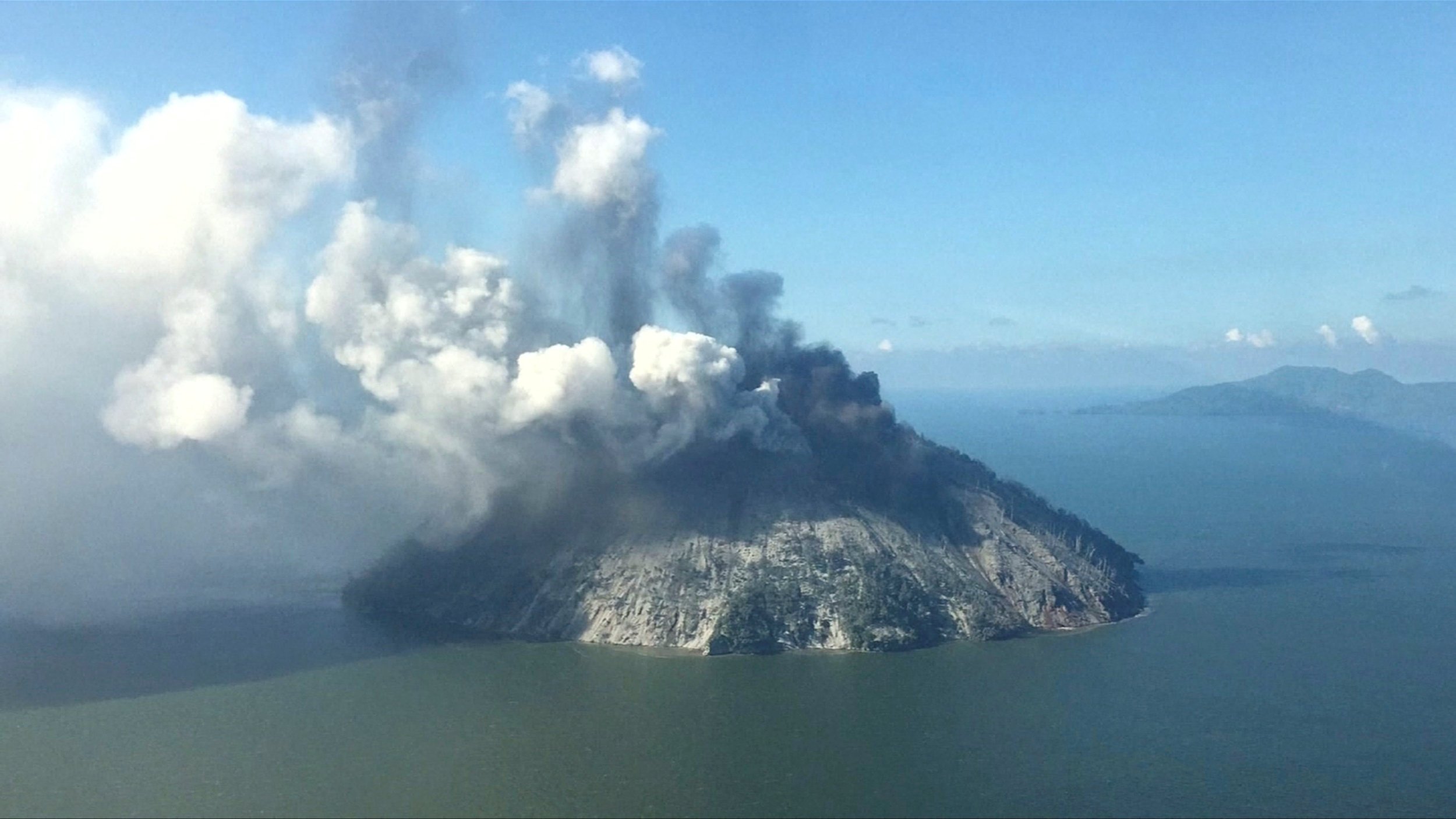
A dormant volcano that first began erupting on January 5 exploded on Friday, forcing the evacuation of hundreds of people from the Kadovar island in Papua New Guinea.
At least 1,500 residents had been evacuated on Sunday and were brought to the Papuan mainland, about 15 miles from the Kadovar island. They were provided with around 87,000 kina ($26,274) in funding to help them, the agency told Reuters.
Additional financial help to supply the evacuees with basic goods and accommodation was pledged from Australia. The Australian government is contributing 25,000 Australian dollars (nearly $20,000) in humanitarian supplies to Papua New Guinea, Australian foreign minister Julie Bishop wrote in a tweet.
Aus Govt contributing $25k humanitarian supplies for #PNG people affected by Kadovar Island volcano-590 residents evacuated to nearby Blup Blup island 🇦🇺🇵🇬🌋 pic.twitter.com/wTI3GuPiRw
— The Hon Julie Bishop (@JulieBishopMP) January 12, 2018
A first batch of 590 people were evacuated to the nearby Blup Blup island, also known as Ruprup island, when the eruption began nine days ago. This was the first such instance ever recorded for the 1,197-feet Mount Kadovar, which vented ash for several days before exploding, blasting out glowing red rocks and sulphur dioxide.
A dome of lava was also observed in the sea at the base of thick white steam clouds that were rising to almost 2,000 feet above sea level, according to the latest bulletin of the Rabaul Volcanologist Observatory quoted in Reuters.
Local authorities have planned a further evacuation of people in the islands of Blup Blup and Bam—also known as Biem—fearing that their own volcanoes could erupt, and also issued a tsunami warning.
"Volcanoes are very unpredictable, we are hearing various reports that activity has been building up and we need to take all precautions to keep our people safe," read a statement from Prime Minister Peter O'Neill, quoted in the Australian Broadcasting Corporation. "We will not take risks with human lives, let's get people out of harm's way now."
Rabaul Volcano Observatory volcanologist Steve Saunders said further eruptions in nearby volcanic islands were "unlikely," whereas a tsunami triggered by seismic activity at Kadovar was a possibility.
"There is a potential for [the eruption] to get more violent than it is at the moment, and if it does become more violent, there's the possibility for tsunami," Saunders said, quoted in ABC.
Uncommon Knowledge
Newsweek is committed to challenging conventional wisdom and finding connections in the search for common ground.
Newsweek is committed to challenging conventional wisdom and finding connections in the search for common ground.
About the writer
Sofia Lotto Persio reports mainly on Asia and gender issues for Newsweek. She previously covered international affairs with a specific ... Read more
To read how Newsweek uses AI as a newsroom tool, Click here.








